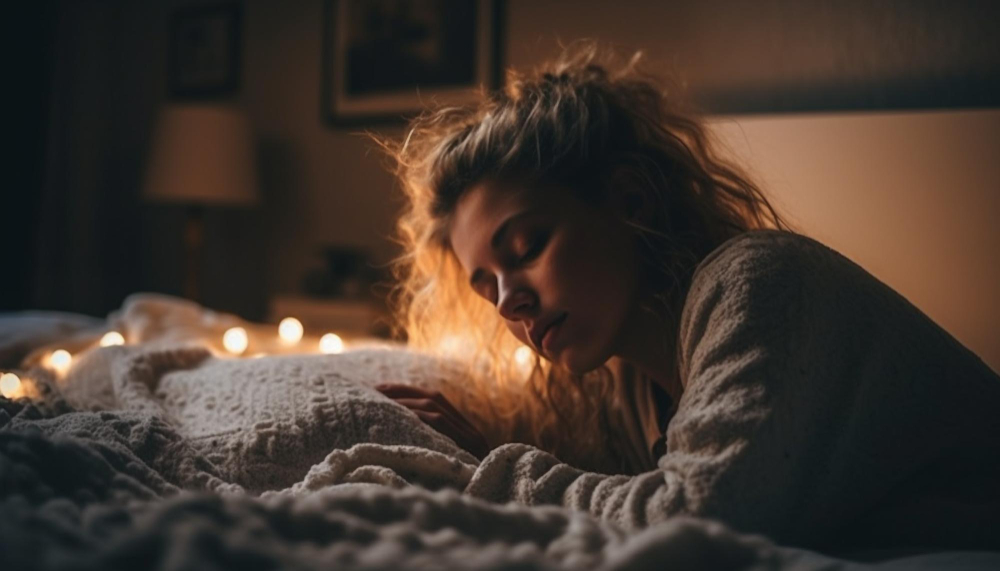Rush of Anxiety When Falling Asleep

The phenomenon of experiencing a rush of anxiety just as one is falling asleep is a perplexing and often distressing experience that affects numerous individuals. This specific type of anxiety, striking at the threshold between wakefulness and sleep, can disrupt the process of falling asleep and significantly impact sleep quality. Understanding this occurrence, its potential causes, and exploring effective management strategies is essential for those seeking relief from these nighttime anxiety surges. This article delves into the nature of this condition, shedding light on why it happens and offering guidance on how to mitigate its effects for a better night’s rest.
Unveiling the Nighttime Anxiety Paradox
The transition from wakefulness to sleep involves a complex interplay of physiological and neurological changes. For some individuals, this transition becomes a trigger for anxiety, manifesting as a sudden rush of worrisome thoughts or a feeling of unease. This paradoxical increase in anxiety at night, a time typically associated with relaxation and peace, can be both confusing and frustrating for sufferers. The quiet of the night, free from the distractions of daytime activities, can inadvertently become a fertile ground for anxiety to flourish.
The Role of Stress and Hyperarousal
One of the primary factors contributing to this rush of anxiety is the state of hyperarousal caused by stress. Chronic stress keeps the body in a heightened state of alertness, which can clash with the body’s natural inclination to wind down as bedtime approaches. This conflict can trigger anxiety precisely when the body attempts to transition to a state of rest. The lack of external distractions at night also means that individuals are more attuned to their internal thoughts and feelings, allowing anxieties that were background noise during the day to move to the forefront.
The Impact of Sleep Disorders
Underlying sleep disorders can also play a significant role in nighttime anxiety. Conditions such as insomnia, sleep apnea, or restless leg syndrome not only disrupt sleep patterns but can also heighten anxiety levels, creating a vicious cycle of sleeplessness and anxiety. The dread of not being able to fall asleep or the fear of experiencing sleep disturbances can, in itself, trigger anxiety as bedtime approaches.
Cognitive Factors and Thought Patterns
Cognitive factors, including rumination and worry about past or future events, are potent triggers for anxiety at bedtime. The mind’s tendency to engage in a review of the day’s events or to anticipate upcoming challenges can escalate into a full-blown anxiety attack. This is particularly true for individuals with a predisposition to anxiety or those going through periods of significant life stress.
Strategies for Managing Nighttime Anxiety
Managing nighttime anxiety involves a combination of lifestyle changes, relaxation techniques, and, in some cases, professional intervention. Establishing a calming bedtime routine, incorporating practices such as reading, gentle stretching, or listening to soothing music, can signal to the body that it’s time to wind down. Mindfulness meditation and deep breathing exercises can also be effective in managing the physiological symptoms of anxiety, promoting relaxation and easing the transition to sleep.
Creating a Conducive Sleep Environment
The sleep environment plays a crucial role in combating nighttime anxiety. Ensuring the bedroom is a calm, comfortable, and technology-free zone can help minimize distractions and create conditions conducive to sleep. Limiting caffeine and heavy meals before bedtime, maintaining a regular sleep schedule, and avoiding stimulating activities in the evening can also help reduce the likelihood of anxiety surges.
Seeking Professional Support
For individuals whose anxiety significantly interferes with their ability to fall asleep or stay asleep, seeking professional support may be necessary. Cognitive-behavioral therapy (CBT) for insomnia is a highly effective treatment that addresses the underlying thought patterns contributing to sleep-related anxiety. In some cases, medication may also be prescribed as part of a comprehensive treatment plan.
In conclusion, experiencing a rush of anxiety when falling asleep is a challenging condition that can severely impact sleep quality and overall well-being. Understanding the underlying causes and implementing effective management strategies can help mitigate these anxiety surges, promoting better sleep and enhancing life quality. For those struggling with persistent or severe nighttime anxiety, professional guidance can offer further support and treatment options, paving the way for peaceful nights and restorative sleep.


